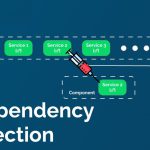Introduction: Launching Your Career in Tech 🌱👩💻👨💻
Breaking into the tech industry as a junior developer can be both exciting and challenging. With technology evolving at lightning speed, companies seek talented individuals who not only possess technical skills but also demonstrate adaptability, creativity, and a passion for problem-solving. But what exactly are tech companies looking for when hiring junior developers?
In this article, we’ll explore the essential skills, qualities, and experiences that can help you stand out and land your first job as a junior developer. Whether you’re a recent graduate or transitioning into tech, understanding these key factors will set you on the path to success.
1. Technical Skills and Coding Proficiency 💻🧩
Technical skills are the foundation of any developer role. While junior developers aren’t expected to know everything, companies look for candidates with a solid understanding of fundamental programming concepts and the ability to write clean, efficient code.
✅ Essential Programming Languages:
- Frontend Development: HTML, CSS, JavaScript (and frameworks like React, Angular, or Vue.js)
- Backend Development: Python, Java, Node.js, Ruby, or PHP
- Databases: SQL and NoSQL databases (e.g., MySQL, PostgreSQL, MongoDB)
- Version Control: Git and platforms like GitHub or GitLab
🧠 Core Programming Concepts:
- Object-oriented programming (OOP)
- Data structures and algorithms
- API integration and development
- Debugging and troubleshooting code
- Basic cybersecurity awareness
Pro Tip: Focus on mastering a few languages relevant to your desired role rather than trying to learn everything at once. Companies value depth of knowledge over breadth.
2. Problem-Solving and Critical Thinking 🧠💡
Coding is fundamentally about solving problems. Tech companies want developers who can think critically, analyze challenges, and develop creative solutions. This includes breaking down complex problems into manageable parts and using logical reasoning to find efficient solutions.
💼 How to Showcase Problem-Solving Skills:
- Participate in coding challenges on platforms like LeetCode, HackerRank, or Codewars.
- Highlight projects where you solved specific problems using code.
- Share your problem-solving process during interviews, explaining how you approached challenges and overcame obstacles.
3. Collaboration and Communication Skills 🗣️🤝
Software development is rarely a solo endeavor. Junior developers often work closely with teammates, senior developers, designers, and stakeholders. Effective communication and collaboration are essential for success in this environment.
💬 Key Collaboration Skills:
- Clear and concise communication, both written and verbal
- Active listening and openness to feedback
- Willingness to ask questions and seek help when needed
- Ability to explain technical concepts to non-technical stakeholders
Pro Tip: Highlight teamwork experiences from coding boot camps, group projects, or previous jobs to demonstrate your collaboration skills.
4. Adaptability and Willingness to Learn 📚🔁
Technology evolves rapidly, and successful developers must continuously learn and adapt. Companies look for candidates who are curious, open to new ideas, and eager to expand their skill sets.
📖 Demonstrating a Growth Mindset:
- Showcase personal projects or side projects that demonstrate your passion for coding.
- Mention any online courses, certifications, or workshops you’ve completed (e.g., from Coursera, Udemy, or freeCodeCamp).
- Highlight instances where you quickly learned new technologies or adapted to changes in previous roles.
Pro Tip: Stay informed about industry trends and emerging technologies to demonstrate your commitment to continuous learning.
5. Understanding of Development Tools and Workflows 🛠️💼
Familiarity with industry-standard tools and workflows is essential for junior developers. While companies provide training, having prior experience with these tools can give you a competitive edge.
🧰 Key Tools and Platforms:
- Version Control: Git, GitHub, GitLab, or Bitbucket
- Development Environments: Visual Studio Code, IntelliJ, or PyCharm
- Project Management Tools: Jira, Trello, or Asana
- Collaboration Platforms: Slack, Microsoft Teams, or Zoom
- Testing and Debugging: Unit testing frameworks like Jest, Mocha, or PyTest
Pro Tip: Learn how to use the terminal/command line, as many development workflows involve command-line tools.
6. Portfolio and Practical Experience 📂🌐
A well-structured portfolio is crucial for showcasing your skills and making a strong impression. Companies value practical experience, whether gained through coursework, personal projects, internships, or freelance work.
💼 Building a Standout Portfolio:
- Include projects that demonstrate your coding skills, problem-solving abilities, and creativity.
- Use GitHub to showcase your code, ensuring that repositories are well-documented and organized.
- Highlight projects that are relevant to the role you’re applying for, such as building responsive websites, developing APIs, or creating full-stack applications.
- Consider building a personal website to showcase your portfolio, resume, and contact information.
Pro Tip: Contributing to open-source projects can also help you gain real-world experience and demonstrate your collaboration skills.
7. Cultural Fit and Passion for Technology 💙🚀
Beyond technical skills, companies look for candidates who align with their culture and values. Passion for technology, curiosity, and a positive attitude can set you apart from other applicants.
🌱 Demonstrating Cultural Fit:
- Research the company’s mission, values, and culture before applying.
- Highlight your passion for coding and your excitement about the company’s products or services.
- Show enthusiasm, resilience, and a proactive approach to learning and problem-solving.
Pro Tip: Use the cover letter and interview to share your story—why you love coding, what motivates you, and how your values align with the company’s mission.
8. What to Avoid: Common Mistakes to Watch Out For ❌
While showcasing your strengths is essential, it’s equally important to avoid common pitfalls that could hurt your chances:
- Lack of Preparation: Not researching the company or practicing coding challenges before technical interviews.
- Overstating Skills: Be honest about your abilities—exaggerating can lead to problems during coding assessments.
- Poor Communication: Failing to articulate your thought process during technical interviews.
- Neglecting Soft Skills: Ignoring the importance of teamwork, communication, and adaptability.
- Disorganized Portfolio: Presenting messy or incomplete code in your GitHub repositories.
9. Preparing for the Application Process 📋💼
Landing a junior developer role requires more than just technical skills—you need to navigate the application process effectively.
📝 Tips for Success:
- Tailor Your Resume: Customize your resume to highlight relevant skills and experiences for each job application.
- Write a Compelling Cover Letter: Showcase your passion for coding and explain why you’re a great fit for the company.
- Prepare for Coding Assessments: Practice coding challenges on platforms like LeetCode and HackerRank to improve your problem-solving skills.
- Ace the Technical Interview: During coding interviews, explain your thought process clearly and demonstrate your problem-solving approach.
- Follow Up: Send a thank-you email after interviews to express your appreciation and reiterate your interest in the role.
10. The Future of Junior Developer Roles 🚀🌐
The demand for skilled developers continues to grow across industries, from software development and fintech to healthcare and artificial intelligence. As companies increasingly embrace digital transformation, opportunities for junior developers are expanding worldwide.
To stay competitive in this evolving landscape:
- Continuously update your technical skills and stay informed about industry trends.
- Build a strong professional network by connecting with other developers on platforms like LinkedIn, GitHub, and Stack Overflow.
- Never stop learning—embrace challenges, seek feedback, and strive to improve with every coding project.
Conclusion: Coding Your Way to Success 💡💼
Becoming a junior developer is the first step toward a rewarding career in technology. By mastering essential programming skills, demonstrating problem-solving abilities, and showcasing your passion for coding, you can stand out in a competitive job market. Focus on building a solid portfolio, continuously learning, and aligning your skills with the needs of tech companies. With determination and the right mindset, you’ll be well on your way to landing your dream job as a junior developer and making a meaningful impact in the tech industry.


